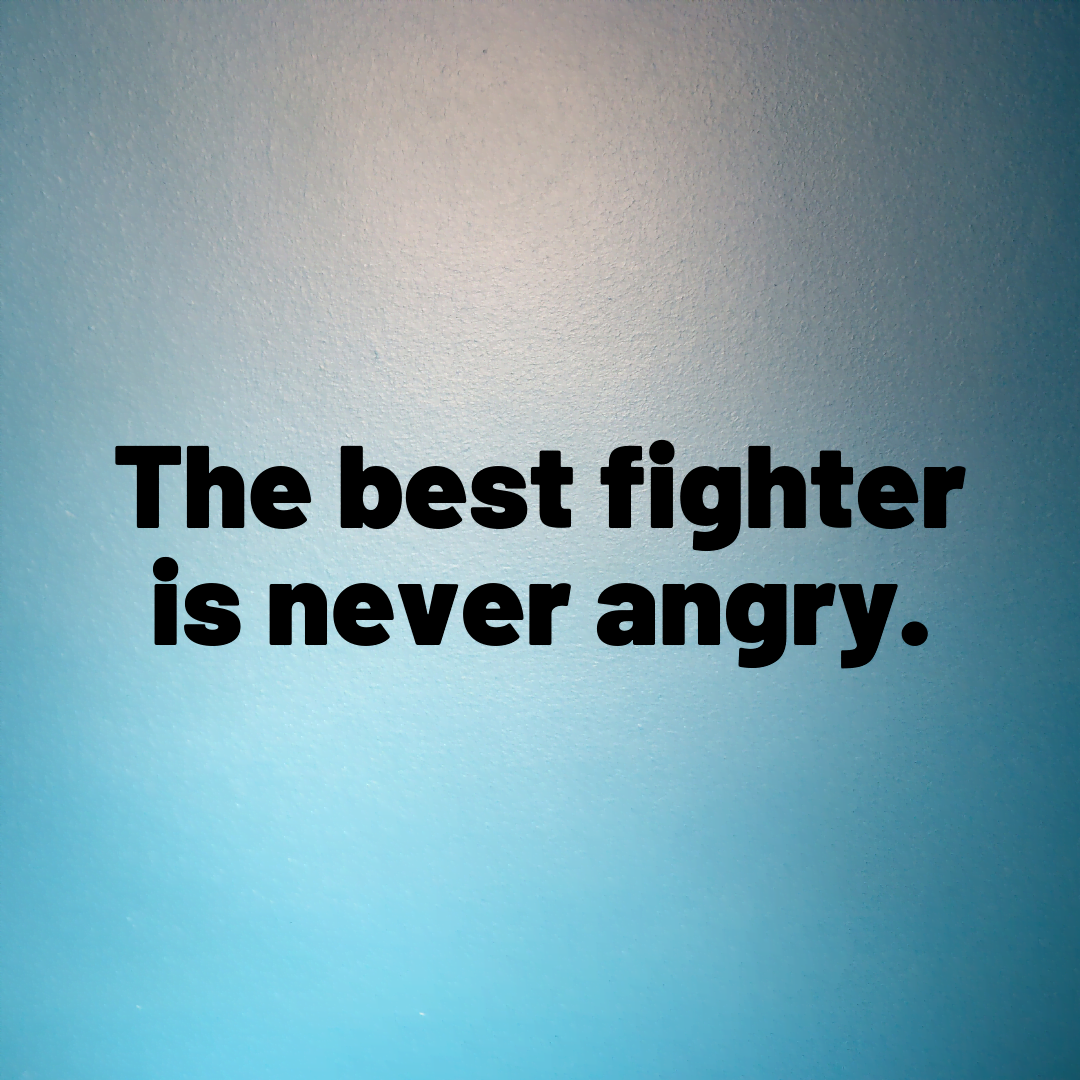In the movie The Matrix, Neo spends a considerable amount of time running, fighting, and rejecting the notion that he’s a savior of the entire universe. However, when he finally believes the prophecy, he disassociates from all emotion, and a calmness overcomes, allowing him to defeat Agent Smith with one hand behind his back (literally).
But the idea that “the best fighter is never angry” is not necessarily about defeat or fighting. That saying has everything to do with our reactions to conflict. It’s about controlling emotions to fight effectively and peacefully. Although it might not feel like it in the heat of the moment, we are the masters of our actions, thoughts, and emotions, and there are ways to combat flying into an all-out rage when we experience clashes.
Why do we fight?
Explaining why we fight is like trying to decipher an organic chemistry equation. It’s unique to the individual and their experiences. However, there are physiological reasons. Psychology Today says that besides our personal experiences, we are hard-wired to protect ourselves and our values. As humans, we make rash decisions that keep us locked in toxic fighting cycles that can hinder growth when it comes to conflict.
What are the best ways to handle feelings of anger?
So how do we stay one step ahead of the game and break the cycles that hold us back from progressing? There are so many steps to help when you start feeling angry, but what works for one may not work for another. So, here are some things to get you thinking about alternative, positive ways to handle those angry feelings.
- Identify why you’re angry. To understand why you’re angry is a huge undertaking. Sometimes, we don’t know why we’re triggered, so taking the time to analyze it can be beneficial in more ways than one.
- Give yourself a time-out. If you feel like you’re about to lose it, allow yourself to take a minute to gather your thoughts and calm down. Whether that involves stepping outside or removing yourself from a tense environment, make sure you step away for a few minutes.
- Do breathing exercises. It’s common knowledge that deep breathing can lower your stress response. When you engage in these exercises, your brain gets the signal to relax, helping you calm down in an intense situation.
- Think before you speak. We’ve all had moments where we say things we wish we hadn’t. Thinking before you speak can help calm you down and avoid saying something you may later regret.
- Come up with possible solutions. Shift the focus from anger to figuring out ways to solve your disputes. Trying to wrangle issues from anger can be difficult and add more fuel to the fire.
How can we handle conflict effectively?
You can bet that a conflict of some nature will occur at some point in your life, whether the relationship is romantic, work-related, friend, or family. And acknowledging a conflict exists is the first step to effectively handling the struggle.
Though you aren’t able to control another person’s reactions, you’re able to manage your own. So here are some skills you’ll need in your arsenal for when conflict arises:
- Be a good communicator
- Actively listen
- Find common ground
- Be able to agree to disagree
How to gain control of our emotions?
Emotions aren’t always destructive, and they can be instrumental if we know how to interpret them. But first, you must find out what they are and why you’re feeling them.
They can be tricky to comprehend, let alone gain control over, but it’s not impossible. So ask yourself these questions to gain a better understanding.
1. What emotion am I feeling? (anger, sadness, etc.)
2. What occurred to make me feel this way?
3. What is a constructive way to deal with this emotion?
Breaking down feelings can get exhausting, but worth the work to try and figure out the puzzle of a unique you.
Remember, anger and conflict are a part of our lives, and we have the conscious choice to choose how we react. All that being said, it’s not always easy. A considerable amount of work involves a deeper understanding of yourself and why you feel certain emotions in different situations.
Once you become more aware of why you are feeling anger, a shift will occur. You’ll start to realize that, while all of your emotions are valid, they don’t have to have a permanent seat at the head of your table. They can come in for a visit and leave when it’s time.




